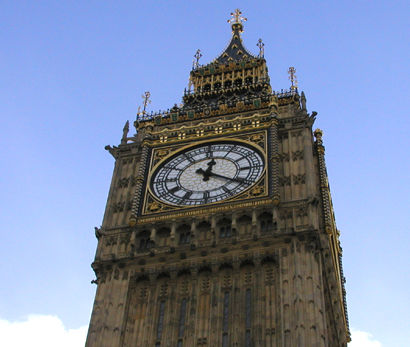MPs have voted decisively in favour of HS2, by approving the financial 'Paving Bill' with a majority of 316. The Prime Minister said the scheme was 'absolutely vital', but opponents of the project claimed that the vote demonstrated a 'clear disconnect' with public opinion.
The vote came as a study aiming to increase the benefits to Scotland HS2 rail was announced. HS2 Ltd said high speed services to Scotland and the north of England will start as soon as Phase 1 opens in 2026. Transport minister Baroness Kramer said the project would 'bring the UK together'.
Scottish transport minister Keith Brown said he was 'excited' to work with the UK government on the plan. In the longer term, HS2 could itself be extended to reach Glasgow and Edinburgh.
The High Speed Rail (Preparation) Bill will now move to the House of Lords, but the Commons vote was seen as the key test of the Government's proposals.
The Prime Minister welcomed the outcome. David Cameron said HS2 was an 'absolutely vital programme', but he been facing a potential u-turn by Labour, which created the project when it was in power but has recently been warning that there can be 'no blank cheque' for the new lines. There had been speculation, which proved to be unfounded, that Labour MPs would oppose the Bill.
Mr Cameron called for a 'national consensus' and said he hoped that: "Labour would "see sense, stop talking about pulling the plug and get behind it". He added: "I'm absolutely sure it's an essential piece of work for the country. It's not just about journey times... it's about capacity.
"The fact is, the West Coast Main Line is full. Every day there are thousands of people standing on trains who need to be able to sit down and work on trains."
His reference to working on trains is noteworthy, because until very recently the Department of Transport had been maintaining that the time savings on HS2 were additionally valuable because people do not work on trains, and would therefore have less downtime if the journey itself was shorter. After widespread criticism of this assessment, the DfT has now changed its stance and conceded that people can and do work during a train journey.
Meanwhile, opponents have continued to voice their discontent. Penny Gaines of Stop HS2 reacted to the vote in the Commons by claiminng the Government was 'losing credibility' on the issue 'by trying to claim that speed is irrelevant'. She added: "Ordinary people are realising that HS2 is a shiny new toy for politicians' egos, not a realistic answer to current transport issues."
However, the transport secretary Patrick McLoughlin said this week that an alternative upgrading of existing main lines would take 14 years, cost £20 billion and require thousands of weekend blockades. At the end of this time, the capacity gains would still be much less. He told a conference in Manchester: "This is not an alternative, it is an impossibility. We can’t build for the future by ripping the existing network to bits. It would just be a giant bodge up.”
The Bill approved by MPs will authorise preliminary expenditure on the project. A further and much larger measure, known as a Hybrid Bill, will be needed to allow construction to begin.
A Hybrid Bill is so called because it contains elements of Public and Private Acts. In the past, Private Acts were used to authorise projects like new railways, although the process has mostly been replaced over the last 20 years or so by orders granted under the Transport & Works Act. However, the size and complexity of HS2 will require a full-scale Act of Parliament before it can be built.


